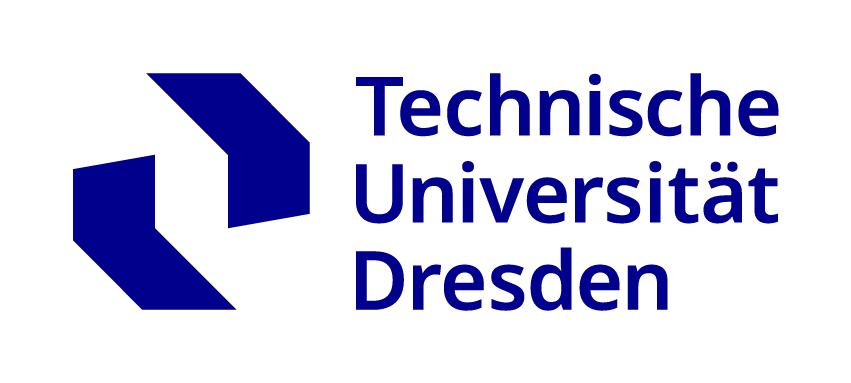Kontakt
| Web: | https://tu-dresden.de/med/mf/imm/forschung/roers-group | |
| E-Mail: | ||
| Telefon: | +49 (0) 351 458-6500 | |
| Fax: | +49 (0) 351 458-6316 | |
| Postanschrift: | Technische Universität Dresden (TUD), Professur für Immunologie, Fetscherstraße 74, 01307 Dresden, Germany | |
| Besucheradresse: | Technische Universität Dresden (TUD), Professur für Immunologie, Fiedlerstraße 42, 01307 Dresden, Germany | |
| Partner: | Technische Universität Dresden | |
Beschreibung
Research Group:
The group focuses on endogenous mechanisms that control (i.e. limit) immune responses in vivo and thereby prevent inflammatory disease caused by immune-mediated “collateral damage” to host tissues. Malignant tumors corrupt such immunosuppressive principles to protect themselves against anti-tumor immunity. In this context, we are particularly interested in the role played by the anti-inflammatory cytokine interleukin-10. We address these issues using our mutant mouse lines with selective inactivation of the IL-10 gene in individual cell types. Furthermore, mast cells were reported to be capable of suppressing immune responses and to be important players in cancerogenesis. We address these and various other questions of mast cell biology using new genetic tools for mast cell-specific gene inactivation in vivo that we have recently generated.
Focus 1: Autoimmunität
Wir untersuchen Mechanismen, die durch unkontrollierte Aktivierung des angeborenen Immunsystems zu einem Bruch der Selbsttoleranz und dadurch zu Attacken des T- und B-Zellsystems auf körpereigene Strukturen führen. Das angeborene Immunsystem detektiert Virusinfektionen durch die Erkennung viraler Nukleinsäuren mittels spezialisierter Sensoren. Die Viruserkennung setzt dann Immunantworten in Gang, die vor allem durch die Produktion antiviraler Typ I-Interferone und proentzündlicher Zytokine gekennzeichnet sind. Diese angeborene antivirale Immunantwort ist Voraussetzung für die erfolgreiche Bekämpfung des Virus, kann jedoch, wenn sie fälschlich und chronisch aktiviert wird, schweren Schaden anrichten und Autoimmunität verursachen. Der Systemische Lupus Erythematodes (SLE) und verwandte Erkrankungen wie Sklerodermie und Dermatomyositis sind polygene Autoimmunkrankheiten, bei denen dieses Prinzip eine zentrale pathogenetische Rolle spielt. Wir untersuchen Gendefekte, die eine unkontrollierte Aktivierung zytosolischer DNA- (cGAS-STING) oder RNA-Sensorsignalwege (RIG-I/MDA5-MAVS) verursachen. Vor allem versuchen wir zu verstehen, wie infolge genetischer Defekte intrazellulärer Nukleasen (Trex1 und RNase H2) pathogene Nukleinsäure-Liganden für diese Sensoren entstehen und wie die chronische Aktivierung antiviraler Antworten des angeborenen Immunsystems systemische Autoimmunität verursacht.
Focus 2: ‘Typ 2-Immunität’
Type 2 immune responses, dominated by the cytokines IL-4, IL-5 and IL-13, Th2 cells and IgE, are mounted in response to helminthic parasites, ectoparasites and various animal venoms. This type of immune response also promotes wound repair, tissue regeneration and metabolic homeostasis. Uncontrolled type 2 responses on the other hand are central pathogenic events in allergy, asthma, atopic dermatitis, fibrotic diseases and also in cancer. Despite this broad importance in diverse areas of medicine, induction and regulation of type 2 responses are incompletely understood. We coordinate DFG-funded Research Unit (FOR) 2599 ‘Tissue type 2 immunity’ that brings together leading experts in the field of type 2 immunity to address these questions in a collaborative effort. In our FOR 2599-project, we investigate how innate type 2 responses are induced in barrier-defective atopic skin. This is an important question, since the local innate response of the skin is a key driver of systemic type 2 immunity and asthma.
An important effector cell of type 2 immunity is the mast cell. Mast cells are tissue-resident hematopoietic cells that bind IgE on their surface. Antigen that crosslinks mast cell surface IgE rapidly induces release of proinflammatory mediators from secretory granules. While mast cells have been known for decades as key effector cells in allergic diseases, including asthma, their physiological functions are much less clear and subject of intense debate. We have generated novel mouse models for mast cell deficiency, mast cell-specific gene inactivation and mast cell reporter mice which are ideal tools for investigation of mast cell in vivo functions. We found that many published findings on important functions of mast cells in the immune system were not reproducible in our novel models and we challenge the widely held view that mast cells are important amplifiers of innate immunity and essential promoters of adaptive immunity. Our findings do not support a role for mast cells in ‘standard’ adaptive immune responses. We propose that mast cells might serve to fill special functional gaps in the repertoire of mammalian immune responses, many of which potentially undiscovered until today.
Geräte
 Geräte anzeigen (7)
Geräte anzeigen (7)
Zugehörigkeit
übergeordnete Einrichtungen
| Name | Typ | Aktionen |
|---|---|---|
| Institut für Immunologie (IMM) (IMM) | Institut |
Letztes Update
Letztes Update am: 27.11.2018 09:21

